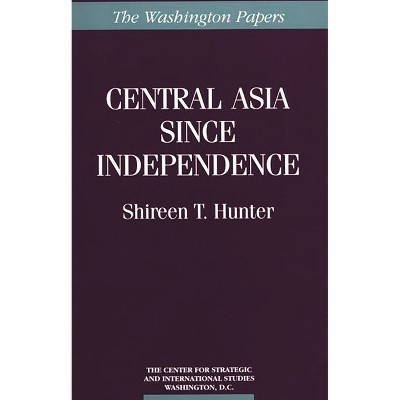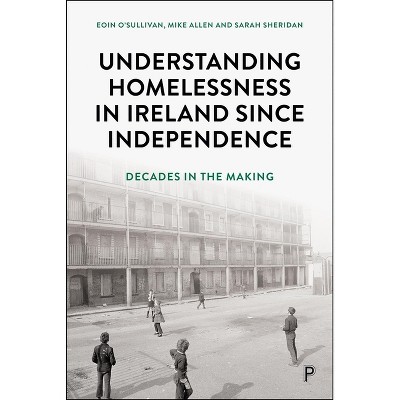Sponsored

Libya Since Independence - by Dirk Vandewalle (Paperback)
In Stock
Sponsored
About this item
Highlights
- Although Libya and its current leader have been the subject of numerous accounts, few have considered how the country's tumultuous history, its institutional development, and its emergence as an oil economy combined to create a state whose rulers ignored the notion of modern statehood.
- About the Author: Dirk Vandewalle is Associate Professor of Government at Dartmouth College and Visiting Scholar at the Harvard Institute for International Development.
- 256 Pages
- History, Middle East
Description
About the Book
Although Libya and its current leader have been the subject of numerous accounts, few have considered how the country's emergence as an oil economy created a state whose rulers ignored the concept of modern statehood. This book supplies a detailed analysis of Libya's political and economic development since the country's independence in 1951.Book Synopsis
Although Libya and its current leader have been the subject of numerous accounts, few have considered how the country's tumultuous history, its institutional development, and its emergence as an oil economy combined to create a state whose rulers ignored the notion of modern statehood. International isolation and a legacy of internal turmoil have destroyed or left undocumented much of what researchers might seek to examine. Dirk Vandewalle supplies a detailed analysis of Libya's political and economic development since the country's independence in 1951, basing his account on fieldwork in Libya, archival research in Tripoli, and personal interviews with some of the country's top policymakers. Vandewalle argues that Libya represents an extreme example of what he calls a "distributive state," an oil-exporting country where an attempt at state-building coincided with large inflows of capital while political and economic institutions were in their infancy. Libya's rulers eventually pursued policies that were politically expedient but proved economically ruinous, and disenfranchised local citizens. Distributive states, according to Vandewalle, may appear capable of resisting economic and political challenges, but they are ill prepared to implement policies that make the state and its institutions relevant to their citizens. Similar developments can be expected whenever local rulers do not have to extract resources from their citizens to fund the building of a modern state.
Review Quotes
Dirk Vandewalle provides the reader with a thought-provoking analysis of the impact of massive and sudden capital inflows on state-building in Libya, a state which, since independence in 1951, has relied almost exclusively on capital inflows in order to survive.... Libya since Independence offers new and unique perspectives and insights on the internal development of Libya after 1951. It should be considered required reading for any student of Libya.
-- "Middle East Journal"This masterful study... makes a valuable contribution to our understanding of Libyan political development. It is essential reading for any student of Libya, and provides excellent comparative material for both North Africa specialists and political economists interested in rentier development.
-- "Journal of North African Studies"Vandewalle's book is not only a much needed and fresh look at the inner workings of Libya; it is also a very valuable contribution to an ongoing theoretical debate over rentier states, state-building, and etatism.
-- "International Journal of Middle East Studies"About the Author
Dirk Vandewalle is Associate Professor of Government at Dartmouth College and Visiting Scholar at the Harvard Institute for International Development.
Shipping details
Return details
Trending Non-Fiction











